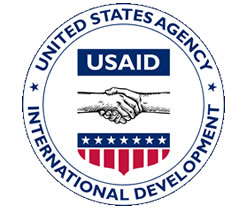 The United States Agency for International Development (USAID) on Thursday signed a co-operation agreement with the United Nations Children’s Fund (UNICEF) in Accra to improve learning outcomes, equitable and inclusive education in Ghana.
The United States Agency for International Development (USAID) on Thursday signed a co-operation agreement with the United Nations Children’s Fund (UNICEF) in Accra to improve learning outcomes, equitable and inclusive education in Ghana.
The focus of the four-year agreement would be on early grade reading performance to build strong foundational reading skills among children which is directly linked to their success in later life.
Mr Jim Beaver, Mission Director of the USAID in Ghana, said a contribution of 14.5 million dollars had been made by the United States Government to support the project.
He said education was key to the development of every country and, therefore, the USAID was excited to partner with UNICEF, Ministry of Education (MOE) and Ghana Education Service to strengthen basic education priorities by improving reading, good management and accountability of teachers.
The support, he said, would expand much of UNICEF’s work with the MOE through the Ghana Education Service to contribute to improving learning of children in kindergarten, including vulnerable and/or the at risk populations such as out of school children, girls and those with learning difficulties.
Mr Beaver commended Ghana for setting the pace for many African countries in her free basic education programme which had improved basic level enrolment and reduced the gender disparity gap to a large extent.
However, despite these achievements, the quality of education has been declining, with only 16 per cent of grade six students proficient in mathematics and only 35 per cent proficient in English, according to the 2011 National Education Assessment.
Also, 20 per cent of children with physical disabilities are not attending school according to the 2010 National Census and much is needed to be done to improve the situation.
He said like every investor, the USAID would expect much dividend in terms of improved teaching and learning outcomes.
Ms Susan Namondo Ngongi, UNICEF Country Representative, welcomed the partnership as a landmark that would help in breaking the inter-generational cycle of poverty using education as its tool.
She said both institutions had a common vision and goals, and would work hand in hand in the post- millennium era which marked a departure from doing things the old ways, but be innovative in their approaches towards scaling up access, quality as well as enhance teaching and learning outcomes through effective monitoring.
Mr Charles Aheto-Tsegah, Acting Director-General of the Ghana Education Service, thanked the two institutions for their sustained partnership and support to various sectors of the country.
The MOE, he said, was pursuing several programmes including intensifying teacher accountability through the introduction of the new Mobile School Report Card System which is a locally designed computer-based solution with the aim of generating reliable up-to-date data on key education indicators for better planning and decision making and also monitors teacher absenteeism.
He said of a set of inclusive education prototype materials had also been developed to improve learning outcomes for children in inclusive child friendly environments to promote effective teaching and learning and remove stereotyping of children with disabilities.
Source: GNA























